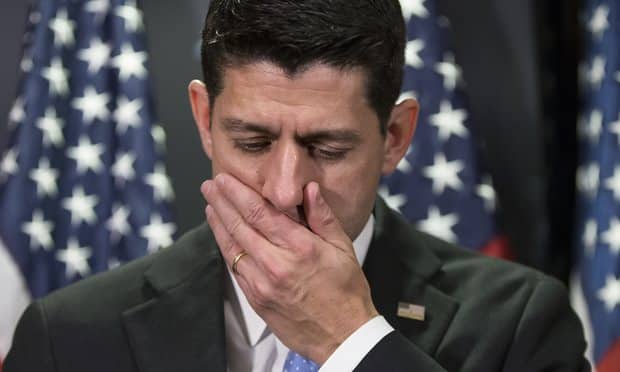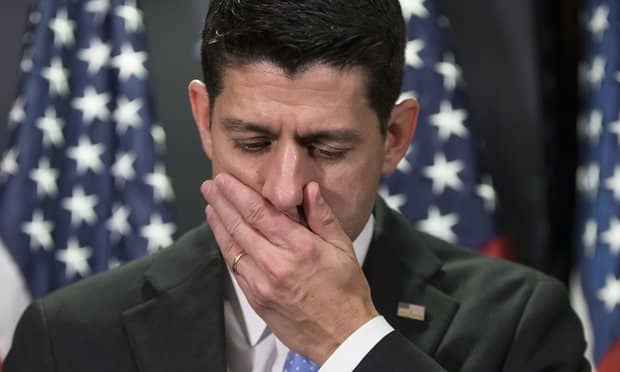On October, 29, 2015, just over one year ago, Rep. Paul Ryan (R-WI) became speaker of the United States House of Representatives. Rep. John Boehner (R-OH) had announced about a month earlier his resignation from the House after House members had become increasingly vocal in their disapproval of Boehner’s leadership and momentum had built significantly towards Boehner’s ouster from the speaker position.
May Ryan soon face a rebellion much like the one his predecessor faced? This possibility is suggested in Matt Fuller’s Friday Huffington Post article that draws much from an interview with Thomas Massie, a Republican House member from Kentucky who is also an advisory board member of the Ron Paul Institute for Peace and Prosperity.
Massie was an early and vocal supporter of the effort in the House to remove Boehner from the speakership. Now Massie is talking similarly regarding Ryan, though Massie still holds out the possibility the he will support Ryan remaining speaker.
In a written statement Massie provided to the Huffington Post, he criticizes Ryan for failures including not ensuring appropriations bills move through the legislative process, not providing members with adequate time to read bills before voting on them, and not enabling debate and vote in the House regarding President Barack Obama’s unilateral engagement of the United States in military conflicts “around the globe.” From a phone conversation with the Huffington Post, Massie is quoted as providing an additional reason he is critical of Ryan remaining in the speaker role. Says Massie, “It would be very difficult for [Ryan] to get my vote based on what I assume his motives are, which are to run for president in 2020,”
Like the House revolt against Boehner, a revolt against Ryan can start with a few maverick voices such as Massie’s before building into a powerful force. Indeed, Massie is quoted in the article as saying he expects more representatives “will wait until the day after the [November 8] election to say what I’m saying now.”


